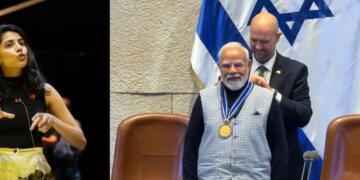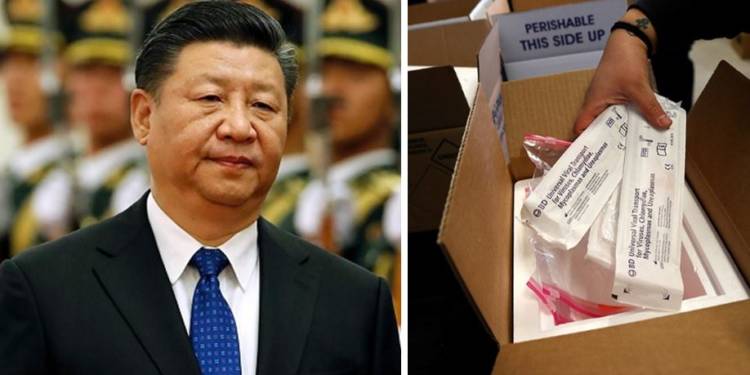The Communist Party of China may have anticipated the Wuhan Virus pandemic as a money-making exercise but in a haste to garner some quick nickels it has made mockery of China as a country. The Xi Jinping regime in an attempt to mitigate the international embarrassment started showering struggling European nations with aid and cheap medical equipment as part of a diplomatic charm offensive strategy. But the strategy China adopted is backfiring quickly as countries have been returning its counterfeit medical products and giving it an earful too.
The latest to join the bandwagon of countries that have rejected ‘Made in China’ materials are the Netherlands, the Philippines, Ukraine, and Turkey. Just to jog the memories of the readers, earlier Spain and Czech Republic had returned the faulty test kits procured from China.
The Dutch government has ordered a recall of around 600,000 masks out of a shipment of 1.3 million from China after they failed to meet quality standards. The defective masks had already been distributed to several hospitals currently battling the COVID-19 outbreak, news agency AFP and Dutch media reported. The Dutch Health Ministry has kept the rest of the shipment on hold.
An inspection revealed that the FFP2 masks did not protect the face properly or had defective filter membranes. The fine filters stop the virus from entering the mouth or nose. The masks failed more than one inspection. The masks were delivered to the Netherlands by a Chinese manufacturer on March 21.
The Department of Health (DOH) of the Philippines said it discarded some coronavirus test kits that came from China because these were only 40% accurate. The DOH had procured 1,00,000 test kits from China that reached the country on March 21. The Philippines has 1,546 cases as of 30 March with 78 deaths.
The Turkish government has also discarded Chinese-made Wuhan virus rapid testing kits after finding out that they gave inaccurate results. “We have received some samples from the company, but we didn’t find them viable and ordered some other testing kit models from a separate Chinese company,” a Turkish official was reported saying.
Turkish Health Minister Fahrettin Koca confirmed later on Friday that Turkey had tried some rapid antigen tests arrived from China, but authorities “weren’t happy about them.”
Spain and the Czech Republic had earlier reported that the Wuhan virus rapid tests their respective countries had received from China were faulty and had a high error rate. Spain had found out that 6,40,000 testing kits it bought from China did not work accurately, out of which 58,000 had already been returned. Madrid stopped using the rapid Covid-19 test kit made by the Chinese company immediately and switched back to the PCR test, which takes up to four hours for a diagnosis, while rapid tests take between 10 to 15 minutes.
In the Czech Republic, up to 80 per cent of the 300,000 rapid Wuhan virus test kits ordered from China were not working properly. The test kits, worth 54 million korunas (€1.83 million), showed false positive as well as negative results.
Meanwhile, India has reached an agreement with Swiss pharmaceutical major Roche which received the Emergency Use Authorisation for its novel coronavirus diagnostic test from the US Food and Drug Administration on March 12. The Roche India spokesperson said that the diagnostic kit is likely to be made available for patient testing in India over the next few weeks.
The central government has fast-tracked the regulatory approval process by allowing US FDA EUA/CE IVD approved kits to be used directly after due approval from DCGI and intimation to ICMR without any further validation within India.
Last Thursday, the first made-in-India coronavirus testing kits also reached the market, raising hopes of an increase in the screening of patients with flu symptoms to confirm or rule out the Covid-19 infection.
Mylab Discovery, in the western city of Pune, became the first Indian firm to get full approval to make and sell testing kits. Minal Dakhave Bhosale who pioneered the entire rendezvous submitted the proposal for the testing kit to the FDA and the drugs control authority CDSCO for commercial approval, just an hour before heading to the hospital to deliver her baby. Mylab is the only Indian company to achieve 100% accurate testing results.
The laboratory shipped the first batch of 150 to diagnostic labs in Pune, Mumbai, Delhi, Goa, and Bengaluru (Bangalore) last week.
India is not looking to procure any testing kits from China. However, the government will soon place an order for personal protective equipment (PPE) — masks, eye gear, and other items — and ventilators from China.
Given the high failure rate of Chinese Testing kits, it is a prudent decision to not order any kits from the Chinese counterparts. However, India needs to carefully test the other medical equipment it is looking to import from China before employing it in the field.





























Thanks for sharing this with us!
Myrealchemistry